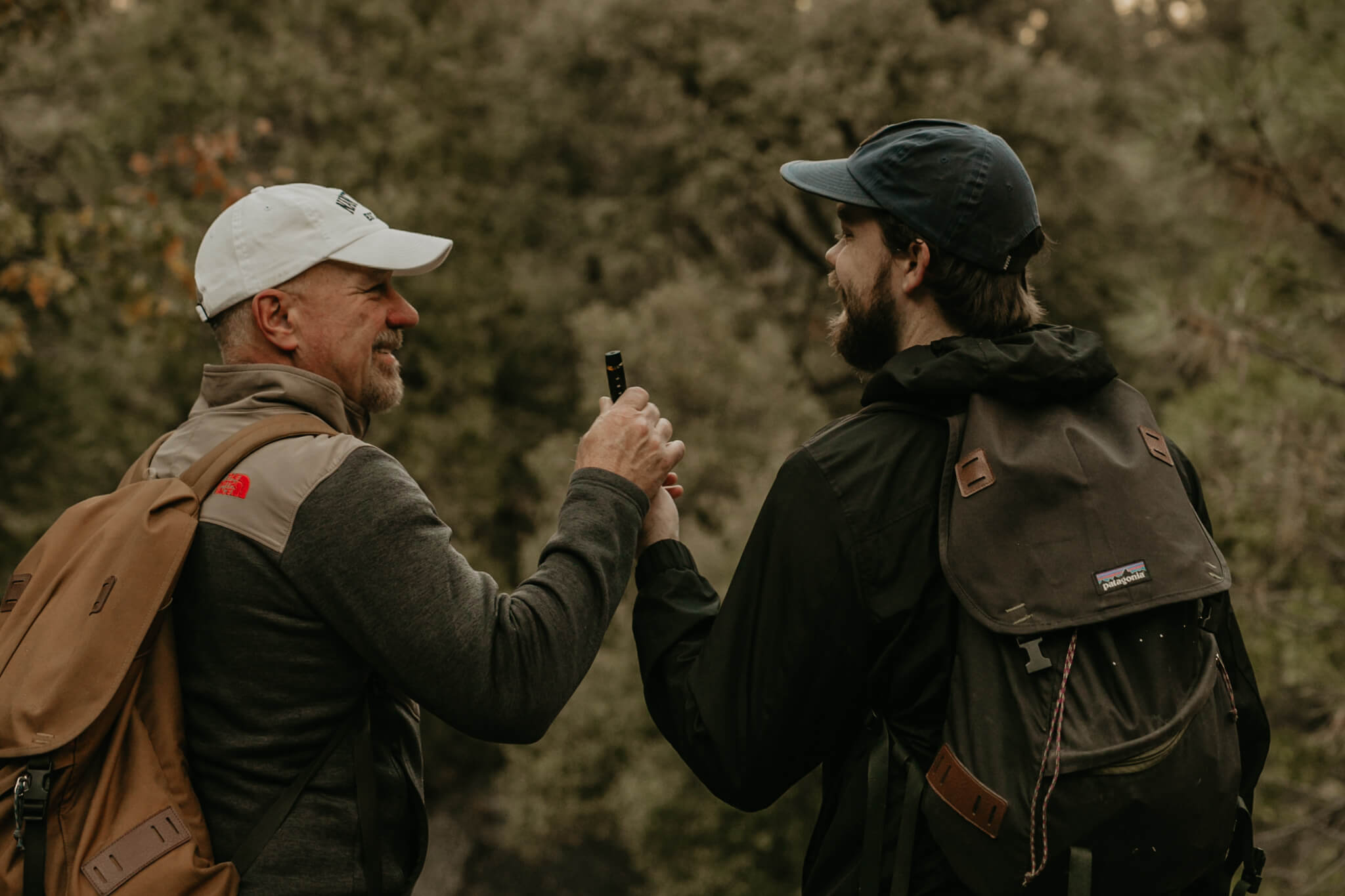
Ah, family. As we edge closer to the holiday season, we are turning our minds to non-controversial dinner topics. Politics might be out, but discussing cannabis might go down better than you’d think. Turns out, the over 65 crowd has become the country’s fastest-growing group of cannabis consumers. With over 93 percent of Americans in support of medical marijuana, the chances are someone in your family is curious, if not already on board. Here’s a cheat sheet for having informative, helpful discussions about cannabis with parents, relatives, and friends.
A cure for what ails you
It might be best to start simple and remind people that cannabis has scores of legitimate medical properties. You would have to have your head buried in the sand to not have heard about the growing popularity of cannabis products like CBD in everything from pain creams to infused waters. Nevertheless, many people who are generally supportive of medical marijuana have no idea how to incorporate it into their wellness regimes.
From insomnia and arthritis to acne and anxiety, cannabis can offer quick relief with few side effects. Helping family and friends navigate which products might be right for them or steering them to a reputable dispensary can make a huge quality of life difference for people who have been enduring unpleasant ailments.
For localized pain relief, like sore muscles and aching joints, a topical cannabis cream can bring relief and reduce inflammation without any psychoactive side effects. For older relatives especially, this can be a boon—particularly in the face of growing concerns about the potential for addiction when using pharmaceutical painkillers.
Indeed, cannabis has gained traction as a safe remedy for many age-related ailments. More and more health practitioners, dispensaries and advocacy groups are marketing directly to seniors. Age-related conditions like osteoarthritis, Parkinson’s, dementia, and chronic inflammation respond incredibly well to CBD.
Point out there are very few downsides
It can be helpful to point out to reluctant or dubious family members that trying cannabis is a pretty low-risk proposition. It’s considerably less addictive than drugs, alcohol, and cigarettes, with few, if any, side effects. You can’t overdose, and most agree it is not a gateway drug. Perhaps most notably, researchers claim it is 114 times less harmful than booze.
Let them know what to expect
A lot of older people who haven’t experimented with marijuana since the ‘70s are often quick to report that it’s gotten much stronger since their day. Like other crops, cultivation techniques have evolved in recent generations. Some strains have been propagated with certain effects in mind, and thoughtfully choosing the right cannabis product for one’s needs will be essential to getting the results they are looking for.
Familiarizing curious family members with cannabis protocols can also help ensure they have a good experience. For example, you might need to remind them that consuming too much can lead to discomfort, or let them know that if they choose to vape, choosing a quality concentrate will be important for health and safety. Many report that edibles, capsules, and tinctures can be hard on an empty stomach, and go down easier after a meal.
Choosing a consumption method
Cannabis has come a long way, and consumption no longer means strictly inhaling – or coughing. There are countless options available, from discreet vape pens to yummy edibles and over-the-counter creams. Whatever your pleasure, there is a consumption method for you.
As doctors receive no education about medical marijuana, (because it remains illegal at the federal level), family and friends can play a crucial role in connecting someone with an informed guide who can help them discover what is right for them.
Although it never hurts to ask a doctor’s opinion, your trusted medical professional may be hesitant to recommend cannabis even if they think it is a good idea. That’s why a savvy budtender can be indispensable in helping patients understand dosing, strains, and consumption methods.
Cannabis doesn’t necessarily mean getting high
The cannabis plant is chock full of beneficial compounds that have nothing to do with intoxication. Helping people to understand that they can get the medical benefits without the psychoactive ones – if that is their preference – can often help people cross a mental hurdle and decide to take the plunge.
THC, cannabis’ most famous component, is known for its capacity to produce a “high,” but also comes replete with a host of other benefits. Other compounds have big medical benefits but don’t have any psychoactive properties. CBN, for example, is reported to help people sleep, while THC-V seems to suppress your appetite. CBD, as we have discussed, has a host of benefits, including being a potent analgesic and anti-convulsant.
For people suffering from long-term conditions like Parkinson’s or multiple sclerosis, medical cannabis can offer a lifeline, with minimal downsides.
But isn’t it illegal?
Not exactly. Cannabis is legal for recreational use in eleven states. If you have a qualifying medical condition and obtain a permit, you can safely consume cannabis in 33 states. Meanwhile, 35 states have hemp programs that make hemp-derived CBD legal.
The bottom line is that, although it is complicated, most states permit cannabis consumption in some form. Getting up to speed on what is legal in your state is helpful, and presents a great opportunity to get involved if your states cannabis laws aren’t ideal for your needs.



Recent Comments